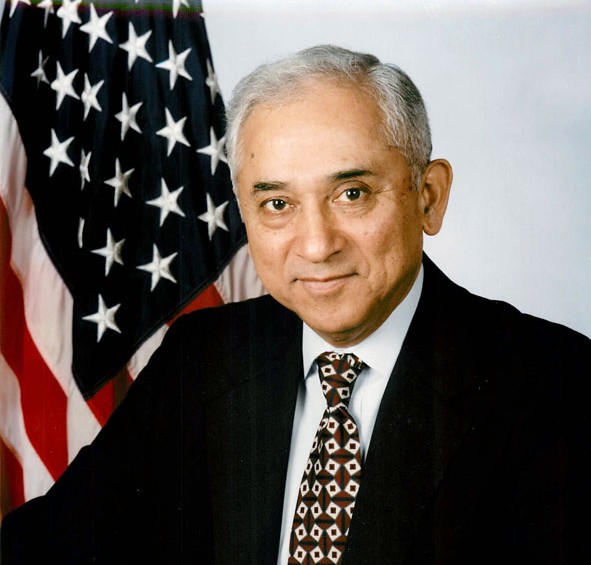Royce Aslakson credits two reasons for Reservation Telephone Cooperative’s (RTC) success: dedicated employees and gushing oil—in that order. “People are the most important asset at RTC,” says Aslakson, CEO and general manager. “Numbers and equipment are important, but our business is about people. By taking care of our employees and customers, the rest will come. Focus on people, and the numbers will come. Focus on the numbers, and the people will go. Motivating people to become team players is the real bottom line on working together for the good of the cooperative.”
Keeping employees motivated and abreast of the latest in telecommunications has been even more important in recent years, as an oil boom has encouraged more than 150 companies to move into North Dakota. And though the correlation between the state’s oil boom and telecommunications isn’t apparent, it’s opened up a number of opportunities for RTC.
Since oil gushed in North Dakota in 2006, modern companies with modern needs have moved into the state that requires the services of telecommunications providers to coordinate the work they do in the fields with the work that’s done in the office. RTC, a Parshall, North Dakota-based telecommunications organization that formed in 1951, has swiftly responded to the boom, serving the area where much of the oil is to be found. “We’re very involved with what a lot of these companies are doing,” says Brooks Goodall, operations manager. “We provide Internet circuits, DSL services, video-surveillance services. We network their facilities. We provide fiber to well sites, gas plants, and pipelines, so the companies can monitor their production. And it seems like there’s something new popping up every day.”
What strengths do you bring to RTC?
Royce Aslakson
CEO & General Manager
“I feel I am fair, honest, positive, and trustworthy. My most valuable strength is the ability to lead people.”
Brooks Goodall
Operations Manager
“I am familiar with the service area being raised here, and I bring technical and leadership skills from the Navy. I enjoy making plans for the future of RTC by forecasting customer demand and keeping an eye on new developments in technology.”
Kristin Jaeger
Marketing Manager
“I bring energy, organization, and coordination to RTC’s initiatives. I like being involved in our communities through RTC events and other activities. I’m proud to be able to serve communities that I care about by working with a great brand and a great team of employees.”
An oil boom brings about heady times, to be sure, but what’s happening in North Dakota looks more long-term than a five-year boom. “These oil companies are expanding every day,” Aslakson explains. “The influx of people is only going to continue, so we have to prepare ourselves to service that expanding market.”
Which means that RTC, a cooperative that has provided phone services to the region for the majority of its existence, is adjusting to rapid changes both in the area it services and in its industry. In addition to landline service, it provides access to high-speed Internet and television. Still, has digital technology rendered its landline service obsolete? Not at all, marketing manager Kristin Jaeger says. Cell-phone companies “ride” on its network, paying RTC for the use of its facilities. “Our landline business is still going up because of the growth of companies in the area—businesses prefer the security of landlines—and because cell service is not available everywhere,” Jaeger says.
With growing and expanding services, Jaeger adds the employee environment becomes more challenging and hectic. “We work in a fast-paced environment, and keeping our employees updated can be challenging. We provide information to employees via our internal website and weekly employee newsletter, and we rely heavily on e-mail,” Jaeger says. “We also do in-house trainings, webinar trainings, and send employees to conferences, seminars, and training to stay updated. Almost every job in the company requires extensive use of technology.”
But RTC is no stranger to keeping people plugged in, nor has it forgotten its voice-services roots. On December 15, 1971, residents of Squaw Gap, Montana, were finally able to reach out and contact someone thanks to RTC. Broadcasted on NBC, thousands experienced the first phone conversation in the town by RTC board president Donnell Haugen and Squaw Gap resident Ray Macik. The pair called Washington, DC, where Earl Butz—then the secretary of agriculture—was standing by to answer their call to congratulate them and the community on this historic milestone. “It’s a great feeling to know our work is helping others!” Jaeger says.
The majority of RTC’s funding comes from Rural Utilities Service (RUS), a division of the US Department of Agriculture. “That’s how we fund and borrow money when we need new facilities,” Aslakson says. “In 2009, we applied for and received a grant from the American Recovery and Reinvestment Act to provide last-mile fiber services.”
The company received $21.9 million from the American Recovery and Reinvestment Act the following year. It included a $10.95 million grant and $10.95 million loan to expand the availability of broadband service on the Fort Berthold Indian Reservation in North Dakota and the Squaw Gap exchange.
Such assistance is helpful as the organization forges ahead with its goal of installing fiber-optic cable throughout its service area. “It can be tough to plan for; we didn’t see this oil rush coming to the extent that it’s now happening,” Aslakson says. “But we’re doing what we’re supposed to do: connecting everyone in the most affordable and convenient ways possible.” Including its employees.
Copy editor Cyndi Loza contributed to this article

